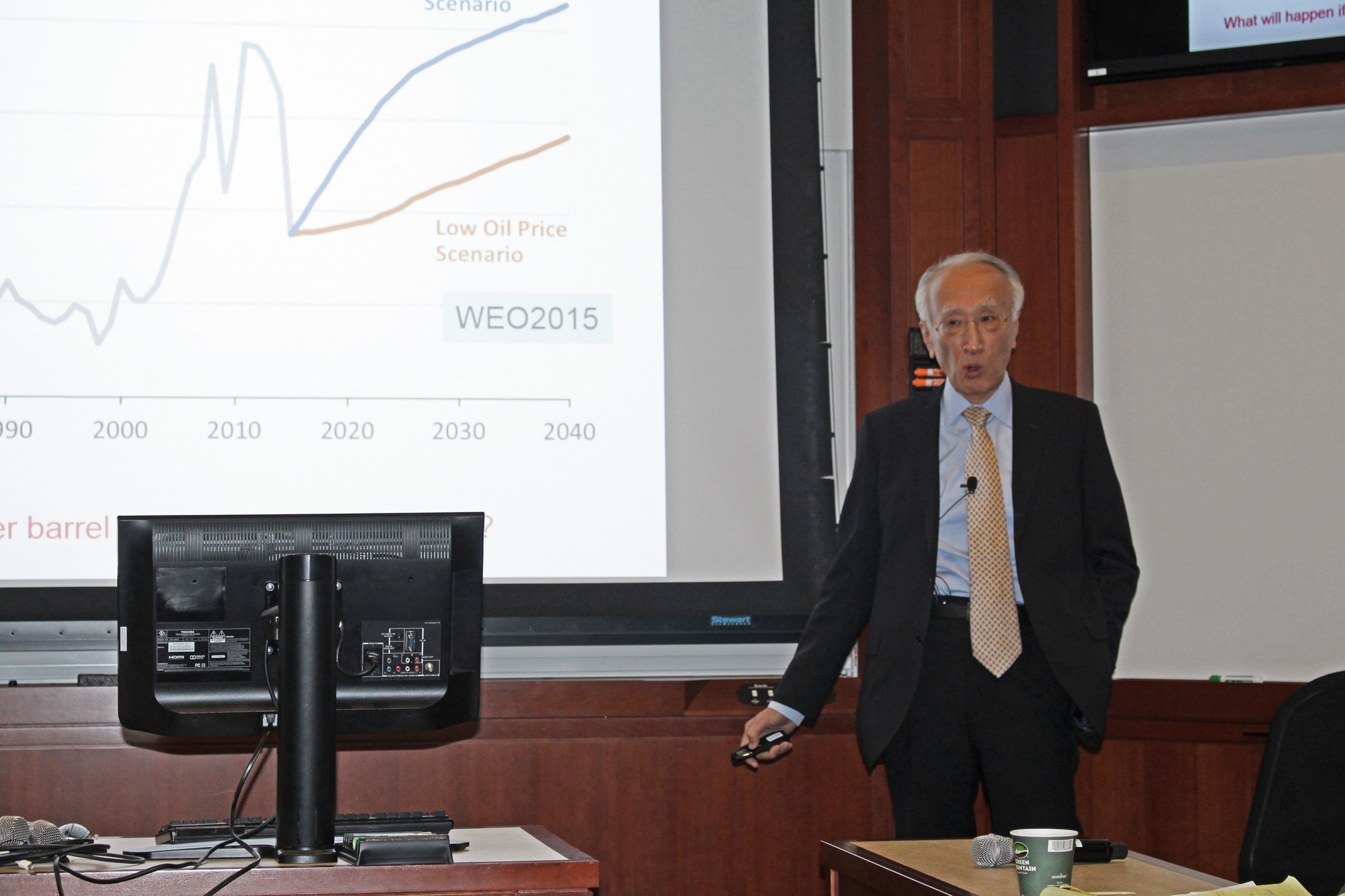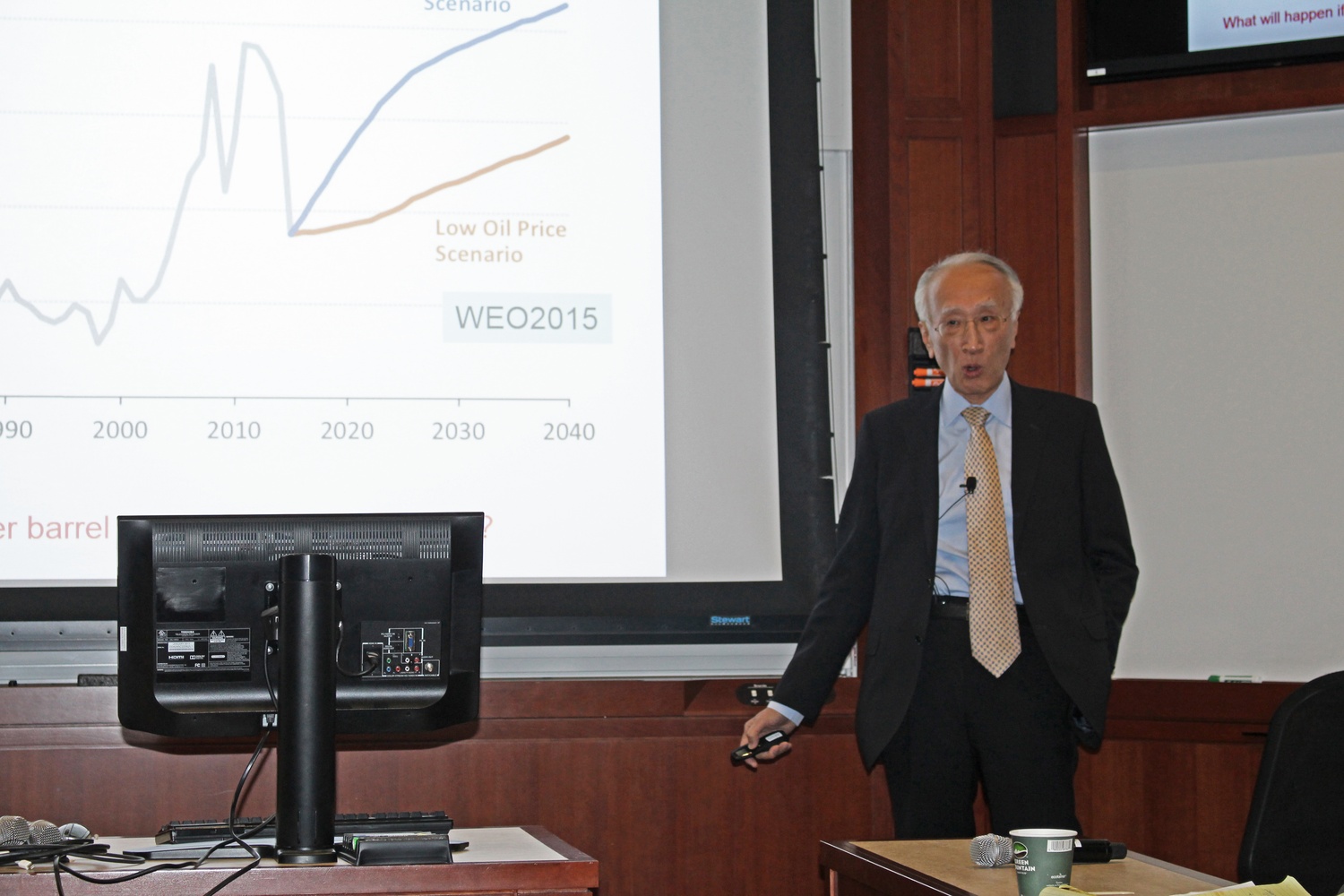
News
Pro-Palestine Encampment Represents First Major Test for Harvard President Alan Garber

News
Israeli PM Benjamin Netanyahu Condemns Antisemitism at U.S. Colleges Amid Encampment at Harvard

News
‘A Joke’: Nikole Hannah-Jones Says Harvard Should Spend More on Legacy of Slavery Initiative

News
Massachusetts ACLU Demands Harvard Reinstate PSC in Letter

News
LIVE UPDATES: Pro-Palestine Protesters Begin Encampment in Harvard Yard
Tanaka Advocates Peacekeeping Through Energy in Asia

Nobuo Tanaka, former executive director of the International Energy Agency and president of the Sasakawa Peace Foundation, argued Tuesday that cooperation in energy efforts should play a vital role in collaboration and peacekeeping in Asia.

During a talk titled “A Vision for Asian Collective Energy Security” at the Belfer Center for Science and International Affairs, Tanaka highlighted the potential for energy issues to both stir conflict and inspire partnership between nations, citing recent territorial disputes over oil-rich waters in the South China Sea.
“Energy has a very geopolitical and strategic nature,” Tanaka said.
Drawing on the success of the European Coal and Steel Community in encouraging European cooperation and peacebuilding after World War II, Tanaka illustrated the potential benefits of energy collaboration in ensuring regional stability.
“For Asia, if countries are interested in peace in the future, starting with controlling and coordinating energy is ultimately the first step,” he said.
For example, the “Asia Super Grid”—a prospective energy infrastructure project that would link electrical grids in Japan, Korea, Russia, and China—could serve as a source of political collaboration as well as a practical solution to rising energy demands, Tanaka said.
According to Tanaka, this rising energy demand is reflected globally. State actors and policymakers will likely face challenges after U.S. shale production subsides and oil prices increase, he said.
Tanaka also addressed climate change and said significant political motivation will be required to maintain carbon dioxide emissions within reasonable limits. In 2007, the United Nation’s Intergovernmental Panel on Climate Change wrote that a rise in global mean temperature of more than two degree Celsius by the end of the century “poses significant risks to many unique and threatened systems.”
“The [International Energy Agency] believes that, despite the [2015 United Nations Climate Change Conference], CO2 emissions will continue to grow,” Tanaka said. “To make it to the two degree Celsius trajectory, you have to really reduce CO2 emissions with different technologies.”
These changes would be costly, according to Tanaka, and would require sufficient political mobilization in order to invest in a more diverse “energy mix,” including renewable and nuclear energy. The influence of large carbon producers is particularly important in combatting this issue, Tanaka added.
“If China starts getting serious about combatting climate change, then other countries will follow,” he said.
Want to keep up with breaking news? Subscribe to our email newsletter.
